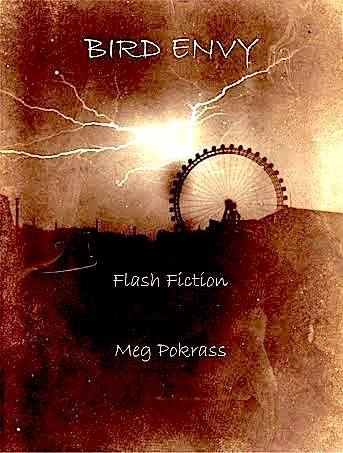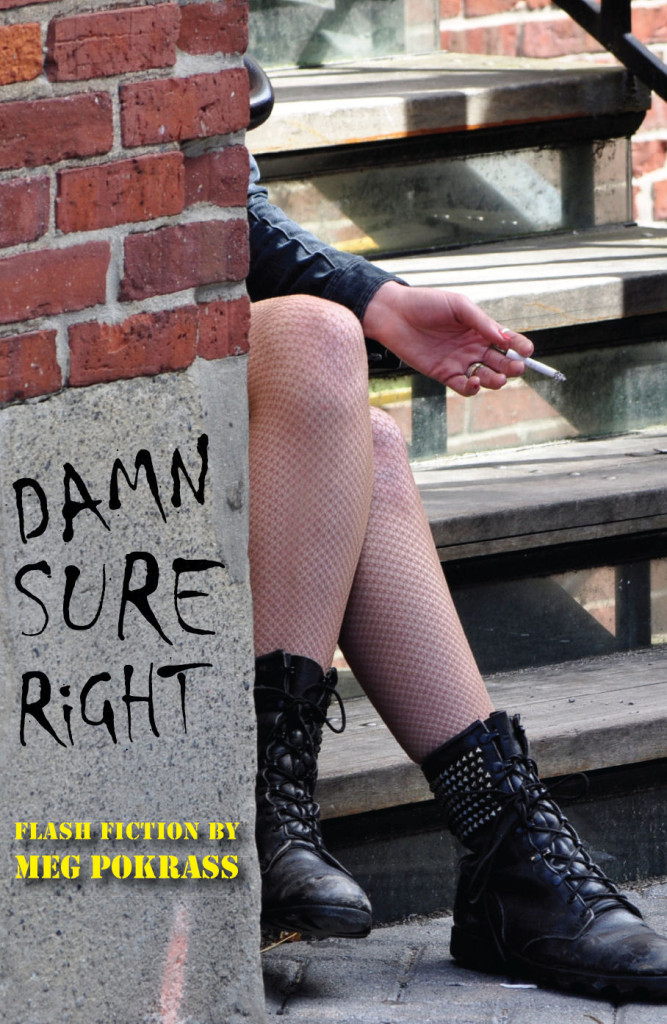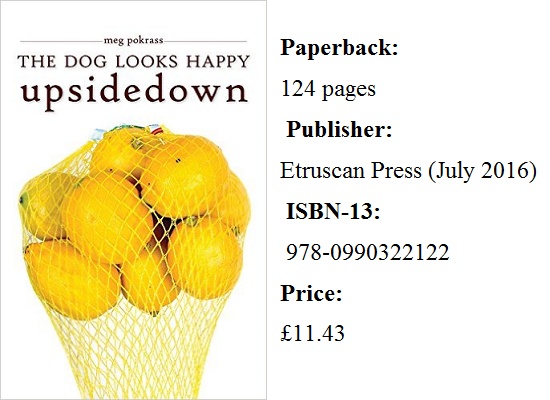Review by Rupert Dastur
To open the cover of this slim but mighty book, is to step into a boxing ring with a champion of Flash Fiction. And not just any champion. Pokrass is the sort of writer who will pull her punches swiftly and skilfully, leaving you blue with bruises. After the bout she’ll offer you a stiff drink and say that life’s pretty tough, but you’ve just got to keep at it. It’s a sentiment that the hard-hit, hard-hitting characters in these fifty-one flashes express with heart-wrenching simplicity.
Often in short story and flash fiction collections, due to the diverse style and substance of individual narratives, it can be reductive to neatly package pieces together. Interestingly, however, this collection offers a surprising consistency. The majority, about four in five of the flashes, are written in the first person. An even greater proportion than this are told from a female perspective, though there is variation in age. A number of protagonists are wannabe-actresses, secretaries, and salespeople; folk who smoke and drink and worry about the rent and the people they love.
Relationships, usually failing or failed, are integral to almost all these flash fictions. Sex, an inevitable consequence, plays a significant part.

What is quite extraordinary is that despite the surface similarities, each flash fiction is unique, is a short, sharp jab of brilliance. These are lives we recognize, even when they veer in unexpected directions; the twists and turns avoid artificiality and almost always feel rewarding. The reader identifies with the sudden shifts a life can take. Similarly too, the drinking and the smoking and the sex has the flavour of Carver, but it’s messier, stickier, more carnal, more akin to the genuine lusts and loves of ordinary people. Pokrass paints the world as it is, her gaze unflinching, her hand steady, and her palette vibrant.
One of the best flashes is ‘In This Light’ and it works well as a representative of the collection as a whole. The first few lines drop the reader in media res, at the centre of a private moment between the narrator and a man called John:
‘There are drops of semen on my lips when he says he loves me for the first time, and tears. I do not dry them.’
Gritty and disturbing, the flash leaps into the abyss in the space of a single line:
‘Twelve hours after my husband David and his bike were destroyed by a truck, people distributed hospital smiles.’
The combination of stark truth with the concise poetry of ‘hospital smiles’ illustrates the precision of Pokrass’s pen, with each word integral to the weight and meaning of the piece. The flash fiction continues to explore the tensions of this trapped woman, bound to her disabled husband, but craving – and taking – the liberties that present themselves; liberties that make her body feel ‘so stupid, so young.’ Here, the self-awareness of the narrator displays the uneasy complexities and contradictions that make up a human life. Pokrass continues to layer the flash with meanings and pressures, finally landing such a powerful uppercut that one is forced to close the book and breathe deeply, relax one’s shoulders, put the kettle on. It’s called the K.O. moment in writing. A knock-out narrative. And all this in under eight hundred words.
A few other motifs pop up in The Dog Looks Happy Upside Down. Related to the title, both cats and

dogs are given sentence time. So too are lemons and citrus fruits in general, which may offer some explanation to the bizarre cover choice; the absurdist image of an upside-down bunch of lemons is somewhat discordant with the grime and graft of these realist fictions. But that is a matter for the publisher, not the writer.
Death also presents itself with frequency, though often in the idiosyncratic, factual one-liner Pokrass delivers so well. This is demonstrated in another exceptional flash fiction, ‘Sparkly Plans’ in which the narrator states:
‘I make a list of our recently unlucky things: We adopted a dog who looks sad but was supposed to make us look happy. Dad died making an old building new. The front of our house is sinking into the ground.’
The understatement, the careful placement of the sentences which couch the dramatic within the comparatively trivial, and the deceptively conversational style all serve to relax the reader while swinging the newly sharpened axe.
Death, drink, divorce – it would seem weighty if it wasn’t also for the sharp wit that also cuts through the prose, albeit in a bittersweet fashion. In one of the earlier flashes, ‘If Things Move Under the Trees’, we’re offered the line: ‘Mainly I wanted to die in the forest with a unicorn’. Such a sad, silly thing to say, particularly in the contexts of a boozy fancy-dress party.
One final plaudit: the beautiful sea of similes. Earlier on, I mentioned the concise poetry Pokrass employs with such ease. This point is aptly shown through the myriad similes that dust the prose. A small sample: ‘My friends, other secretaries, gather on the sunny beach like a bouquet’; ‘In bed, my eyelids behave like cheap polyester drapes, unable to keep out the light’; ‘Mom and I, tightly knotted like helium balloons trying to stay here on earth.’ Whether sad or humorous or both, all these stories sing.
Pokrass has published a number of flash fiction collections, has appeared in over two hundred journals and anthologies, and has repeatedly appeared in the ‘Wigleaf Top Fifty Flash Fiction’ lists. This latest collection by the experienced writer brings together many of her best writings in a book which is an absolute tour de force. Whether a reader or writer of long or short fiction, the piercing portraits in this volume deserve a place on your bookshelf.
The Dog Looks Happy Upside Down can be purchased here.
Rupert Dastur is a writer and editor. He studied English at Emmanuel College, Cambridge, where he specialised in Modernism and the Short Story, He established TSS with the aim of furthering discussion, interest, and development of the short form. He has supported several short story projects and anthologies, and his own work is in / forthcoming in The New Flash Fiction Review, A3 Review, Field of Words, Bath Flash Fiction Anthology 2016, and Bath Short Story Anthology 2016.

